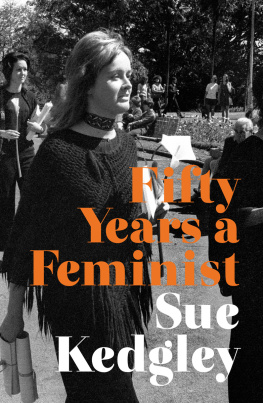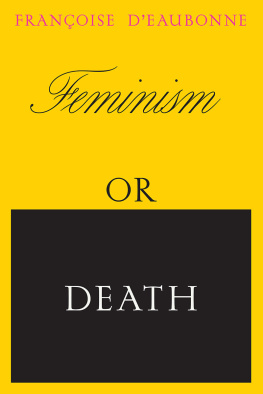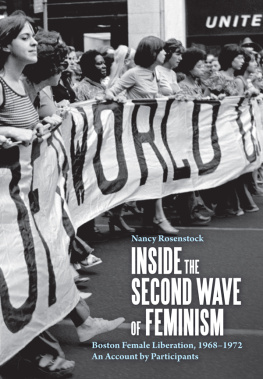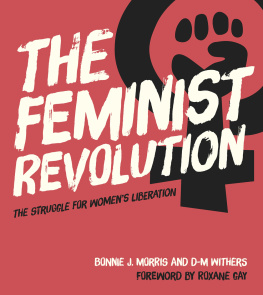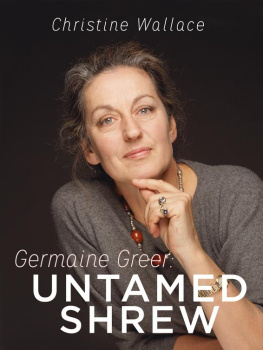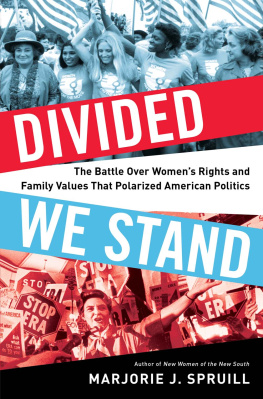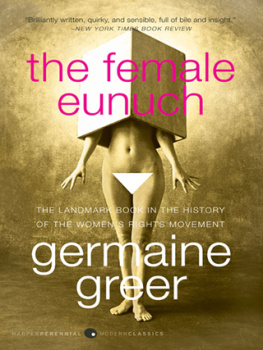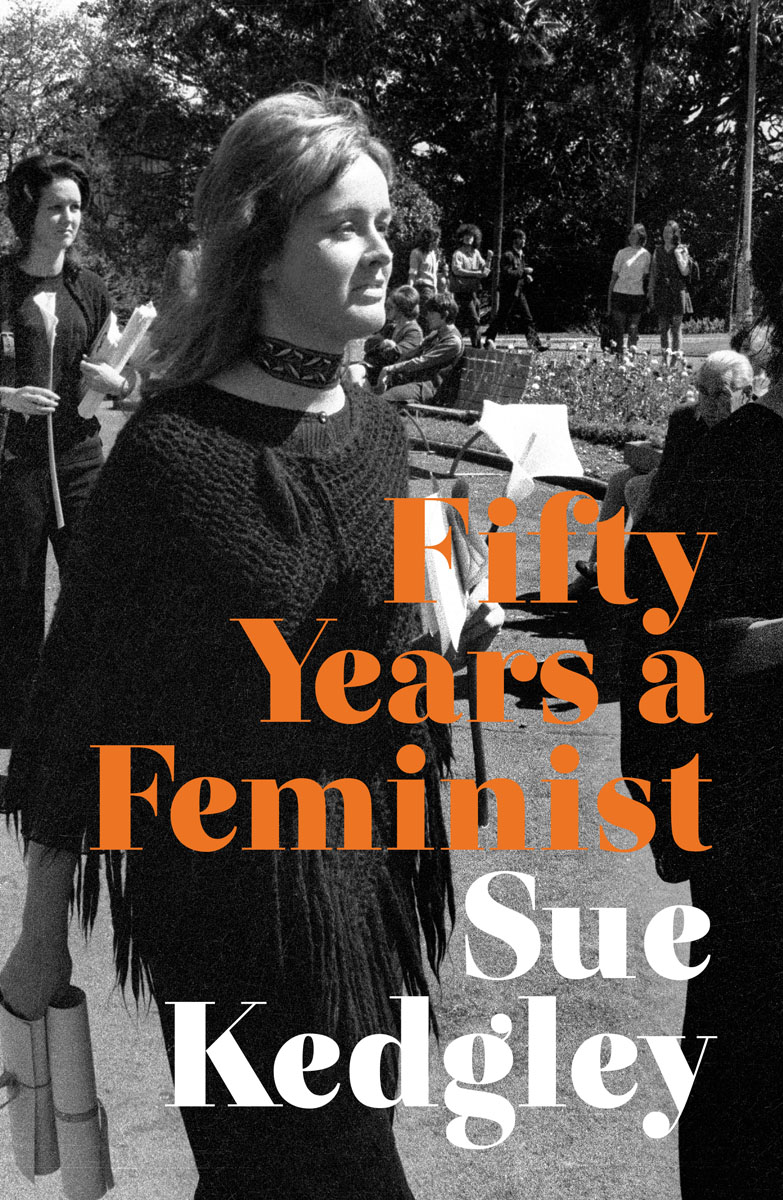

This book is dedicated to all the women who were involved in bringing the womens liberation movement and the second wave of feminism to New Zealand.
It is especially dedicated to the core group of women who helped to set up Auckland University womens liberation and the National Organisation for Women (NOW): the late Sharyn Cederman, Kaye Turner, Toni Jeffreys, Hazel Armstrong, Anne Gilbert, Ngahuia Te Awekotuku, Donna Awatere, Beth Patterson, Jocelyn Werry, the late Sonja Davies, the late Caterina de Nave, Mary Sinclair, Deirdre Milne and many others.
It is also dedicated to the women who are following in our footsteps, picking up the feminist torch and helping to bring us closer to our dream of true equality for all women in New Zealand.
Contents
Up Against the Patriarchy
This book was born of several realisations. First, the realisation that it is 50 years half a century since I first became involved in womens liberation. It makes me feel like an ancient, historic figure.
And, second, the realisation that most people know very little about the womens liberation movement of the 1970s, or indeed the history of feminism in New Zealand, other than the fact that in 1893 we were the first nation on earth to give women the right to vote an achievement that has given us a somewhat undeserved reputation as a leader in gender equality.
To my surprise, I have found that even some of the impressive young women who are spearheading the present wave of feminist activism have barely heard of the 1970s womens liberation movement. They assume that women have progressed steadily towards equality ever since we won the right to vote, and do not realise how stunted womens lives were for much of the twentieth century. Every now and then I am met with a blank stare when I mention my involvement in womens liberation, a sort of What on earth is that? reaction. Some ask me, politely, whether womens liberation has something to do with equal pay. Its as if womens liberation is already a footnote in history; something that happened way back then, and from which society has since moved on.
This is what motivated me to write a personal account of my involvement in the womens liberation movement or the second wave of feminism, as it is often called and the subsequent waves of feminist activism. The past 50 years of feminist activism in New Zealand have benefited all women, whether they identify as feminists or not. So, all women, I believe, should be aware of the rich and vibrant history of feminism, and the far-reaching changes and positive improvements it has brought to our lives. It is also useful for men to learn about the history of feminism. Most men have assumed that the womens movement has nothing to do with them. But mens and womens lives are so intertwined that feminism, and the changes it has brought about in womens lives, have profoundly affected men as well.
Womens liberation has had a huge impact on my life and it has shaped who I am. But when I decided to start a womens liberation group at Auckland University back in 1971, I had no idea that I would still be campaigning for womens equality half a century later, and for many of the issues we thought we had won. I had no idea, in fact, that the campaign for womens equality would turn out to be a lifelong project.
Like most women of my generation, when I set off on my journey all those years ago I had few role models to inspire me or to show me how to live my life as an independent woman in my own right. It was uncharted territory, with no guidelines or signposts along the way. I had to make my own choices, reach my own compromises and experiment every inch of the way.
This memoir examines my life from a feminist perspective. It describes the ups and downs, the mistakes and achievements of a young woman who became a passionate womens liberationist at the age of 23 and resolved that she would live life on her own terms, rather than those of a man, and would forge her own identity and place in the world.
T o understand why it is that there still exists in New Zealand (and the rest of the world) a pervasive, seemingly ineradicable inequality between men and women, despite the recent half-century of feminist activism, we need to travel back in time around 6000 years and put our struggle into historical context.
As we set about creating the womens movement back in 1971 it didnt occur to me, or to my fellow womens liberationists, to do this. Lacking an historical perspective, we navely imagined that once we had exposed the deep-seated discrimination women experienced in New Zealand, and had presented our manifesto for change, our battle would be all but won. I had no idea how difficult it would be to change attitudes and behaviours that have been entrenched in society for thousands of years. I had no idea, in fact, that we were up against 6000 years of patriarchy, and a deeply rooted patriarchal mindset that would take generations to dislodge.
The exact origins of patriarchy are unclear, but patriarchal society is generally thought to have emerged around 4000 BCE. The word patriarchy derives from the Greek patria, meaning father, and arches, meaning rule, and it refers to a system of institutionalised male domination in which men rule women and control almost every aspect of womens lives.
The core belief underpinning patriarchal society is that men are inherently superior to women, who, being physically and mentally less able than men, should be only too happy to spend their lives as a servant class, looking after men and producing offspring. The Greek
In patriarchal societies, women and men lived highly segregated lives. The public sphere was mens domain, while womens lives were confined to the home. In many parts of the world, women were expected to live in separate areas of the house, and receive no formal education or even leave the house unless accompanied by a male. This strict segregation of the sexes effectively excluded women from having any kind of public or independent life outside the home.
This arrangement was extremely convenient for men. By confining women to the home, they were able to control womens sexuality and reproduction, and be sure of the paternity of their children. Indeed, some suggest that the primary purpose of patriarchy was to provide men with legal heirs. As the Athenian orator Demosthenes put it, We have mistresses [hetaerae] for our pleasure, concubines for our daily needs, and wives to give us legitimate children and look after the housekeeping.
This patriarchal belief system was passed down in most societies and cultures, from generation to generation. It became so much a part of life that it was assumed to be natural and inevitable. Men were taught to see themselves as inherently superior to women and naturally dominant over them, and women were taught to see themselves as inferior to men. Over time, women became habituated to control, abuse and even large-scale degradation by men, which took the form of wife-beating, rape, femicide, foot-binding, female circumcision, and being accused of witchcraft and burnt at the stake.
Throughout this time, men have come up with all sorts of bizarre and imaginative explanations as to why women are inherently inferior to men and should be kept in a state of dependence on them. Aristotle concluded that women were so defective that they were, in effect, mutilated or failed males.
Next page
